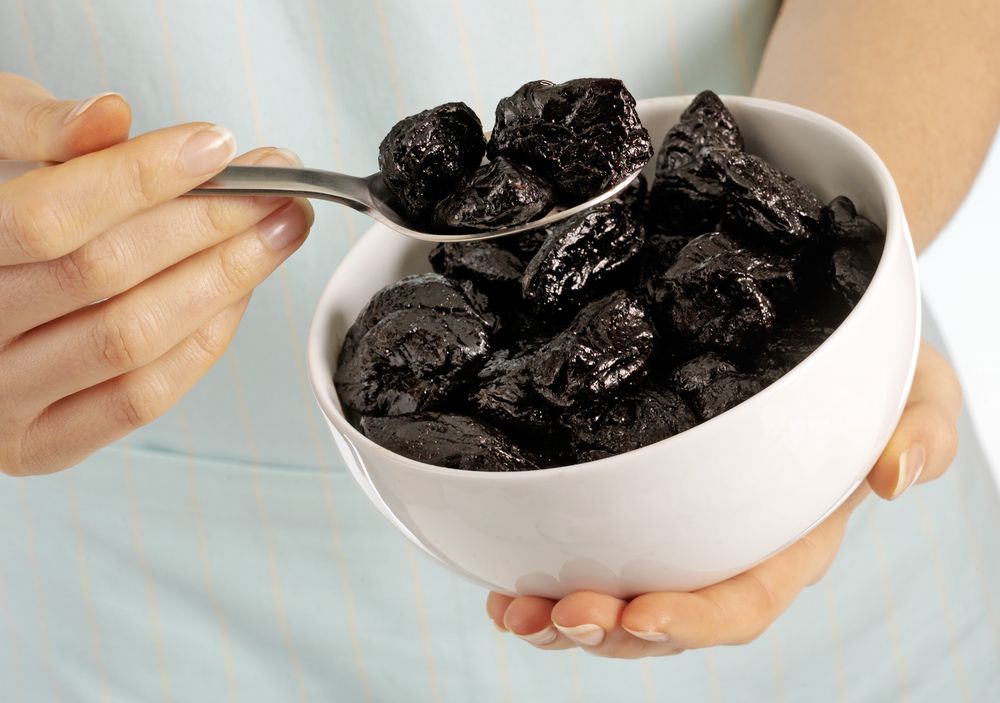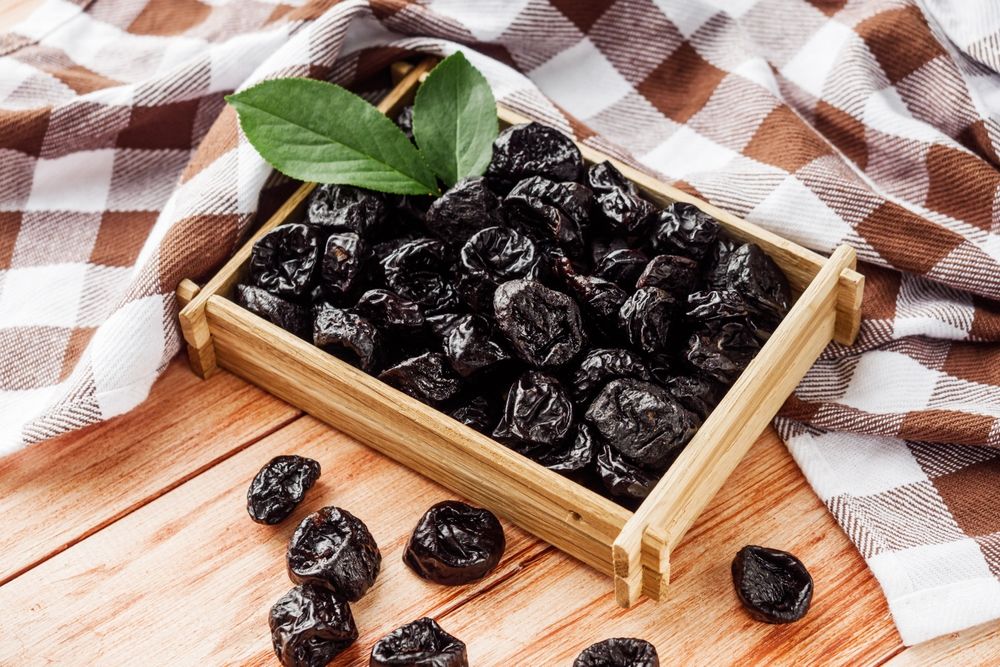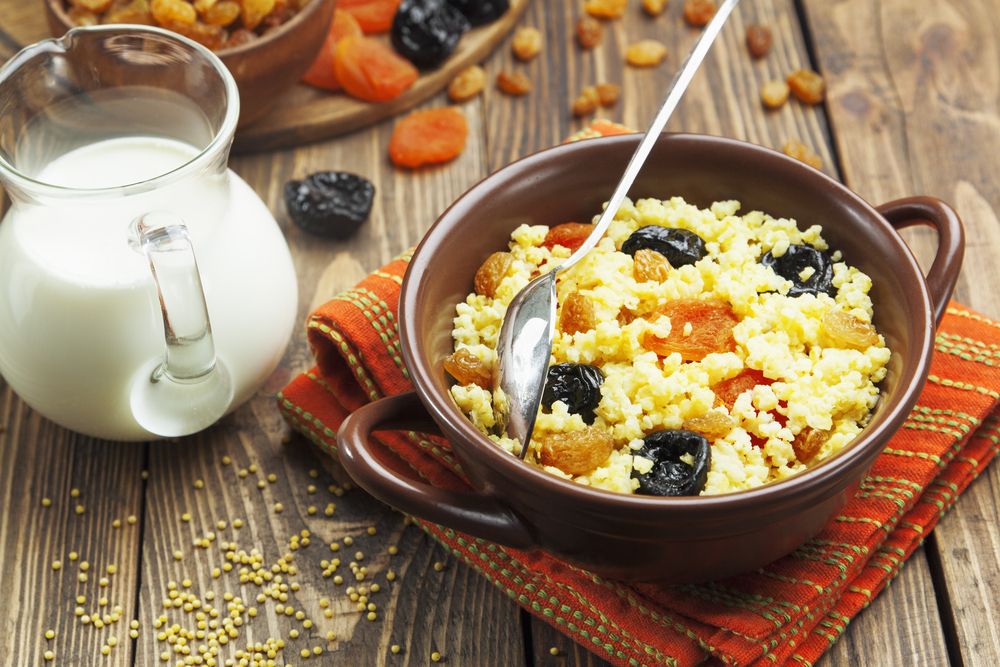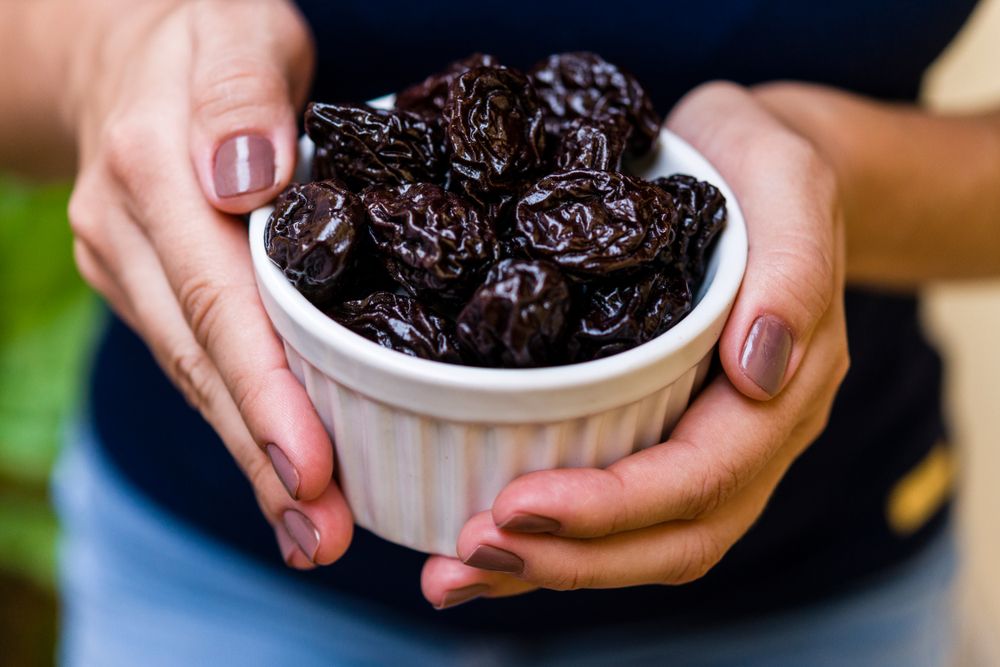Few things are as uncomfortable as dealing with constipation, which can lead to stomach cramps, bloating, nausea, and discomfort during bathroom visits, potentially disrupting your day or even your week. Various factors contribute to constipation, including stress, dehydration, and underlying medical conditions, but your diet also plays a significant role. Inadequate fiber intake and excessive dairy consumption, for instance, can exacerbate the issue. Fortunately, certain foods can aid in relieving constipation.
Items like sweet potatoes, chia seeds, avocados, and beans are known to promote regular bowel movements. However, according to Lauren Manaker, MS, RDN, prunes stand out as the ultimate go-to food for addressing constipation. Manaker notes, "Prunes are a tried-and-true remedy for individuals seeking relief from constipation. Clinical Nutrition research has shown that consuming prunes leads to a considerable increase in both stool weight and frequency compared to those who don't include prunes in their diet."
Continue reading to discover why prunes are the top choice for improving your bowel movements.
How prunes can help you poop

Lauren Manaker explains that prunes possess three essential components responsible for their effectiveness in relieving constipation: fiber, sorbitol, and phenolic compounds.
"Prunes offer a natural solution to constipation due to their high fiber content, which supports regular bowel movements," Manaker states. "For instance, a single serving of Sunsweet Amaz!n Prunes provides 3 grams of dietary fiber."
Fiber is indispensable for promoting healthy bowel movements, as it softens stool and increases its volume. This is achieved by absorbing water, which not only adds bulk but also prevents overly watery stool, making it easier to pass.
In addition to fiber, prunes contain sorbitol, a sugar alcohol with inherent laxative properties, as noted by Manaker. A study featured in The American Journal of Gastroenterology determined that sorbitol derived from prunes can effectively alleviate constipation, enhance regular stool formation, and reduce the incidence of hard stool in individuals with chronic constipation. Even in the case of prune juice, which contains significantly less fiber than whole prunes, sorbitol has been proven to be beneficial in relieving constipation.
Lastly, prunes are rich in phenolic compounds, which, according to Manaker, "may help stimulate intestinal activity." Research indicates that these phenolic plant compounds possess laxative properties that contribute to prunes' ability to alleviate constipation.
"Collectively, these attributes promote better digestive health, making prunes a practical dietary choice for those seeking to enhance their bowel function," Manaker concludes. Fortunately, the advantages of prunes extend beyond addressing constipation.
Other benefits of eating prunes

In addition to being a premier choice for alleviating constipation, prunes offer a range of other health advantages, such as safeguarding against bone loss and assisting in cholesterol management.
"Studies indicate that the consumption of 5 to 6 prunes daily may be beneficial in averting bone loss," Manaker explains, particularly among postmenopausal women. Furthermore, one study has identified a potential connection between the pectin found in prunes and improvements in cholesterol levels. Another study has shown that prunes can play a role in regulating both cholesterol and inflammation, two key factors associated with cardiovascular disease.
Ways to eat prunes

If consuming prunes on their own isn't to your liking, there are numerous alternative ways to incorporate them into your diet.
"Prunes can be seamlessly blended into smoothies, integrated into chicken recipes, or used as an ingredient in desserts," advises Manaker. You can also feature prunes in a charcuterie assortment, create a puree to enhance the sweetness of your preferred sauces, or finely chop them to serve as a delectable topping for your favorite salads.
Regardless of your chosen approach, prunes stand out as one of the top choices for promoting overall digestive health.

